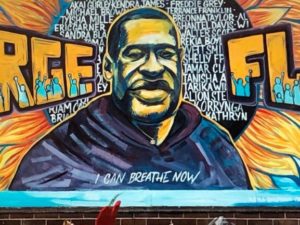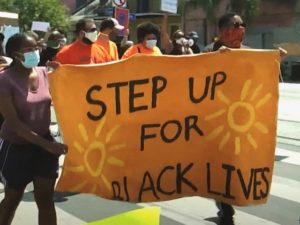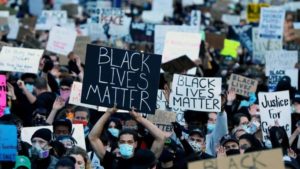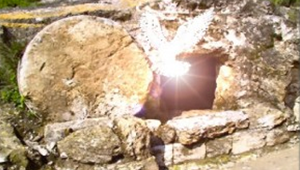 Do we want the whole gospel? Or will we pick and choose gospel-elements that seem most helpful or pertinent to us? Will we settle for less than the Messiah Jesus intended in his life, death and resurrection? Or will we, by grace, pursue and expect a new way of living as human beings that requires the radical language the Bible uses to describe it. Language like: a new creation, being born all over again, becoming the Body of Christ, or communities of citizens under or within the Government of God?
Do we want the whole gospel? Or will we pick and choose gospel-elements that seem most helpful or pertinent to us? Will we settle for less than the Messiah Jesus intended in his life, death and resurrection? Or will we, by grace, pursue and expect a new way of living as human beings that requires the radical language the Bible uses to describe it. Language like: a new creation, being born all over again, becoming the Body of Christ, or communities of citizens under or within the Government of God?
While most of us truly want the whole gospel, many of us settle for less. Much less. The gospel we trust assures us that our sins are forgiven (and always will be so long as we are sorry, we repent, and we ask) and that our future is secure. We—that is, you and I and any other person who trusts this gospel—will be with the Lord forever.
But is that the gospel? All of it?
No, that is a partial gospel. We can be sure it is partial because in the Gospels themselves Jesus does not declare or offered good news (gospel) in this way; because it suggests that the individual takes center stage over the community; because it prioritizes what happens after we die, after we have lived in this world, instead of how and why we live in this world in anticipation of the next world, the new heavens and earth; and because … well, there is much more that could be said!
One of the central features of the partial gospel that most “conservative” “Bible-believing” Christians hold (at least in our part of the world) is that the gospel has to do with a “spiritual” relationship with God. Receiving and trusting the gospel allows us to experience a personal relationship with God, by dealing with the damage and effects of our sin which before had separated us from God. Evangelism is sharing with people so as to win them to such a relationship. Discipleship is teaching and developing such believers in a way of life consistent with this relationship. Key point: the gospel itself, along with evangelism” and “discipleship” are all “spiritual” in nature. That is, they have primarily to do with God and relating to God, as opposed to the so-called secular or worldly realities of our everyday lives.
One of the (unintended?) consequences of this partial understanding of the gospel is to question whether the gospel speaks to issues such as racism or tribalism, or any number of other social, cultural, and political matters we encounter in the world. In our part of the world, it is common among many Christians to distinguish between the gospel itself and efforts to address the evils of wicked people, groups and systems. The former is “spiritual” while the latter is “social.” The former is critically and eternally important, while the latter is temporal and of lesser importance. And, perhaps a corollary of this view, the gospel-way to address and change worldly evils is through evangelistic and discipleship ministry—get people “saved” and this automatically or eventually will address the evils and transform the world.
I would commend a better approach: the whole gospel. In the remainder of this post let me spell out several of the most important reasons the partial gospel is just that, partial. Which means, among other things, that the division of reality into “spiritual” and “secular,” which includes the “social,” represents possibly a distortion and certainly a down-sizing of what has correctly been called “our great salvation.”
Let’s start with Jesus. When he begins public ministry, he announces: “The time has arrived, the Kingdom of God now approaches, so turn around and trust in this gospel (or good news),” (Mark 1:15, my translation). He made this announcement in the wide-open public spaces, rather than a synagogue or the Temple in Jerusalem. All within earshot heard the announcement and had opportunity to learn more and consider what it would mean for them to “turn around and trust in this gospel.” And, all within earshot included people considered in that day to be outsiders as well as insiders. More, in Mark’s continuing story, this kingdom Jesus announced and identified as “gospel” addressed all the ways in which the evils of the world affected people—their bodies, minds, and souls. Further, this gospel challenged, called out, and offered correction to what ailed both individuals and groups. As we read on, we encounter families, social and economic classes or segments of society, different ethnic groups and their traditions, religious and spiritual parties and factions, civil and governmental leaders and functionaries.
This full orbed, holistic good news about the kingdom that Jesus declared and then demonstrated does not distinguish “spiritual” from “secular” the way we commonly do. Jesus was concerned about the soul of the people but also their bodies, their families, and their communities as God’s people. Likewise, also, the demands and responsibilities of interacting with oppressive demons, religious leaders, and Roman authorities.
The infancy narratives (Christmas stories) of Matthew and Luke, reflect a similar holistic understanding of the good news, the gospel, of Jesus the Messiah. Matthew reports the Angel assuring Joseph that the child is from the Holy Spirit and Joseph should name him “Jesus,” because he will do what the name means—save the people from their sins. Matthew then notes that this was to fulfill the Isaiah prophecy that a virgin will bear a son who will be called “Emmanuel,” which means God with us (see Matthew 1:18-23).
Lest we misunderstand what Matthew reports, the next chapter tells us that wise men, traditionally understood as royalty, come from the east to worship the one born to be King of Israel. The story is familiar. Often missed, however, is the implication that this gospel applies to the whole world. That’s clearly what the Magi thought as they come and worship the infant Jesus. That is also what King Herod thought. When the Magi asked about the Christ child, no one understood this as only, or even primarily, a “spiritual” Kingdom. Herod, the current King, and all of Jerusalem were alarmed to hear about the birth of a new king (see Matt. 2:3). Obviously, the Messiah threatened the current political status quo even as his birth promised to fulfill the age-long yearnings of wise leaders from distant lands. When King Herod asked the Bible scholars of the day about the Messiah, they do not tell him not to worry because the Messiah’s Kingdom only relates to spiritual (other-worldly) matters. Instead, they report that the Messiah will be born in Bethlehem, the city of King David, where Scripture promised the ultimate King was to be born.
In Luke’s Christmas stories, the birth of Jesus brings great joy to all people precisely because his coming puts the world on notice: God is making right what has gone wrong with the world and its peoples, all that has gone wrong. His coming has to do with righteousness and justice, as well as grace and truth. His government will hold the high and mighty accountable for their treatment of the low and weak and will bring justice to the oppressed and their perpetrators (see especially Luke 1—2). Jesus and his kingdom enter this world as it is; challenges what is wrong, unjust, and evil; and calls whoever is willing to follow him into another, counter kingdom that will eventually prevail over all creation.
The ministry of Jesus, as all the gospel writers portray it, reflects this huge, holistic understanding of the good news of the kingdom of God. Jesus’ preaching and teaching, healing and serving, forgiving and welcoming of sinners, along with Jesus’ rebuke of the religious leaders of the day, his cleansing of the Temple, and his insistence that God’s Kingdom was manifest in his fellowship—led to his arrest, indictment, condemnation and execution as a Messianic Pretender. To the Jewish leaders this was blasphemy against God and for the Roman authorities this was rebellion against the Empire. On the third day after his crucifixion Jesus rose from the dead demonstrating the reality and the victory of his Kingdom. Then, as Jesus’ Spirit-filled disciples brought their witness to the ends of the earth, the gospel they embraced and shared challenged and threatened, upended and disturbed, the individual, familial, social, religious, cultural and political realities of their day.
Of course, this makes perfect sense if you back up a bit to take in the larger story of Israel and the world. From the beginning there has never been a legitimate division of reality into sacred/secular or spiritual/ natural. From the beginning, as the Psalmist exclaims, the earth is the Lord’s and all that is in it (24:1). Sin and evil brought ruin to the world, in all its dimensionality, organic and inorganic, human and nonhuman, seen and unseen, ruin that has continued and compounded through the millennia. If earth was once very good under the governance of the creator God, only then to be ruined through rebellion against God’s realm, then the good news of the great saving work of God’s Messiah addresses the whole of God’s realm.
Therefore, as we embrace the whole gospel of Jesus’ ministry—culminating in dying and rising and reigning over all—we celebrate the full remedy he has brought to us and our world and will long for the whole world to benefit. We will long for the entire here-and-now-world to consider the good news that the King of heaven and earth has come to seek and save the lost, to ransom slaves and grant them a place, to heal and restore the broken and ruined, and re-inhabit the world with persons renewed in the loving likeness of Jesus. In the meantime, Jesus himself is the peace of heaven that moves into the middle of every hell on earth and breathes, “Shalom!”
Therefore, the whole gospel makes us right with God and with one another, but also with our neighbors, near and far. The gospel aligns our hearts with the heart of Abba-Father so we too hear the cries of those who suffer, for whatever the reason, and cannot help but move toward them seeking their well-being. The gospel of the Kingdom of Jesus is like (even the smallest) seed planted in our hearts and in our relationships, but also in our neighborhoods, communities, towns and cities and beyond. Like seeds scattered wherever there are people and wherever there are organizations or systems designed to coordinate important things, like schools, businesses, and governments to name a few. The gospel seeks soil in every one of these arenas, and will bear fruit within their processes, protocols, patrons, and partisans.
The first to hear and embrace this gospel were mostly minority groups living in social, cultural and political spheres over which they had no control or direct influence. Even so, their life together, centered in Jesus as King and Lord of all, created networks of Kingdom communities that brought life and light to their world. To their world! They had no way to change their world per se other than to inhabit it as serious and devoted followers of Jesus’ way. They were not perfect, but they were profoundly intent on living the Jesus-way. And, the impact of their lives made a telling difference.
The whole gospel sees Jesus as God’s way of bringing a full remedy (or “redemption”) to the world God made and loves. The whole gospel saves souls to the uttermost, for time and eternity, and then equips them to serve their world in all of its spheres and dimensions, demonstrating and facilitating the amazing grace and steadfast love that changes the world. It is not either spiritual or temporal/earthly/worldly. It is not either the souls of people or their situational circumstances in life. It is not either-or in this way. It is both-and.
We must not settle for the gospel in part. We must embrace, or be embraced by, the whole gospel. The whole gospel—turning toward and trusting King Jesus and all he has done for us and works in us and through us—makes us ready for the world to come precisely by enlivening us “ahead of time” to live by the wisdom of King Jesus in the power of his love within every arena and sphere of this present age. We ourselves cannot bring the Kingdom or build the Kingdom on earth, but we can contribute to Kingdom-come by living the life of the Kingdom in the midst of whatever governmental realities there may be. We can respond to our social, cultural and governmental circumstances as advocates and ambassadors of the mind-set, the character, the purposes, and the methods of our Lord and King. And, we can do such things together, knowing that it may lead to a cross but then to the overcoming of evil with good in the Jesus-way.




![the_empty_tomb__Medium_[1]](https://davidkendall.fmcusa.org/wp-content/uploads/2012/04/the_empty_tomb__Medium_1-300x203.jpg)